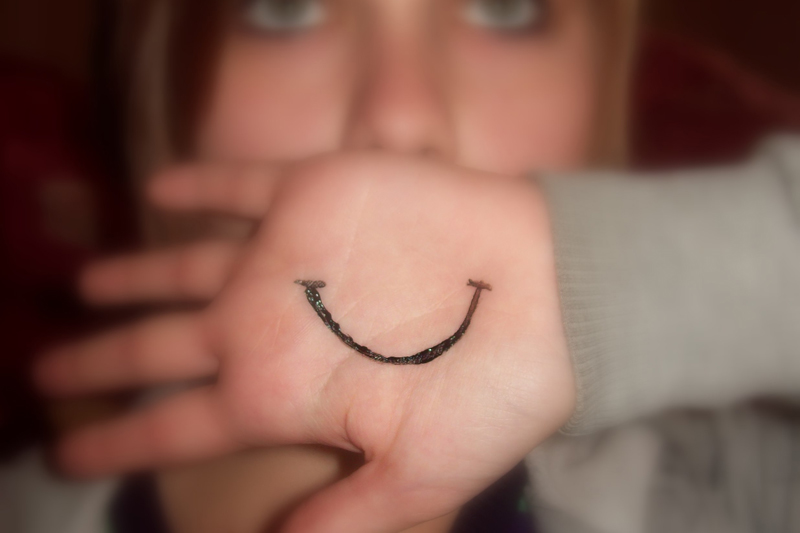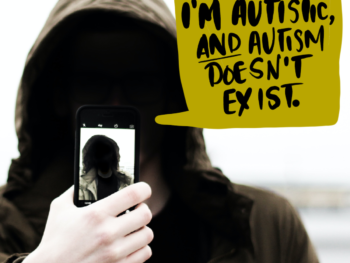
Recently, I blithely told one of my friends from high school that my experience in our church youth group had been largely positive.
Here’s why I felt that way: the group was my first time in Christian fellowship. I served in leadership for three years, was there for almost every event, made a tight group of friends, and formed the foundation of my faith.
Youth group was my life in high school.
I was writing to my friend because I knew that time had not been positive for her, at all. No, in high school, she’d been abused and broken. But I was going to be writing about the youth group and I wanted some of her insight. I wanted to write honestly about the positive and the negative. I wanted to be authentic.
Then I started typing. And I realized that I’d been in denial about high school. Because calling youth group “positive” was laughable.
I mean, I knew that my friend had been sexually abused—raped—for years by our youth leader. I knew that. But somehow the fact that the leader had been emotionally manipulating all of us in leadership, isolating us from healthy adults, that he’d groomed us all for abuse and—very easily—I could have been the one he chose instead—all that had not really sunk down into my bones.
What’s funny is I’d thought I’d confronted the past already. I thought I was already honest with myself about it.
I wasn’t.
Clearly, if I hadn’t faced the truth, despite concerted effort, I hadn’t been ready for it.
There are different levels of knowing, of accepting, of owning the truth. When truth is painful, I’ve found, it’s something you have to grapple with over and over. It is never swallowed whole. There is a faithful bravery that’s necessary as we slowly take in the entirety of what hurts us.
There is no “enough.”
So I ask myself: why wasn’t I ready to face this painful history?
The answer? Because I’d have to admit I was a victim too.
I’d have to admit that I wasn’t okay.
Here’s what happens when I face the history: I fly backwards, on dark wings, towards a time when I had just become a Christian. I needed Christ so desperately then (as now), and I thought, my first day in youth group, that I was finally going to understand how to love him.
I thought youth group was going to help. Was going to equip me with tools to live Christ every day. Was going to surround me with people that would help me find Jesus. Was going to keep me safe.
It’s hard to kneel on the industrial grey carpet next to that wisp of a girl and tell her she was wrong.
She was not safe. The person charged with caring for her was lying. While everyone was laughing, dancing to Erasure and the Pet Shop Boys, there was deep darkness right inside that building. Everywhere.
I had already known grief at that age. I should not have known it again, so soon.
I can’t blame myself for not wanting to tell that tender, innocent me that grief and betrayal is laced through this life, even in church.
No, church didn’t keep me safe, but Jesus did. Jesus kept my friend safe—or, at least, alive. It was not the safety or life we wanted, but it was blessed anyway.
I’ve long had a love-hate relationship towards Christian music. I’ve sung on worship teams for years, but at home, I rarely listened to praise music. Much of that attitude is from high school, where our youth leader thought praise music was lame. We didn’t do worship time in youth group; we were too cool for that.
There were Bible studies and messages about Jesus, but all the music was secular, unless you count U2.
I love secular music, but I’ve long known that worship songs are a direct road into my heart. I’ve wondered why I didn’t like listening to them at home.
The week after I uncovered that rotten layer of truth about our youth leader, I idly turned on a praise music station on iTunes. I’d listened before, but lost interest after a few minutes.
This time, I kept listening.
Some of the lyrics were cheesy, not to my taste, but this time, I didn’t care. I wanted to learn the songs I didn’t know For the first time, I just didn’t care if they were lame.
It wasn’t until after a few days of listening that I connected the dots.
My youth leader had told me worship music was lame, and it wasn’t until now that I’d really stopped believing him.
I am grateful to have that power at work in my life.
Yet let’s not wrap this story up in too tidy of a bow. Youth group sucked. It’s still hard to talk about. I’m still angry that it was possible, and I am still cynical about church. I am tremendously angry that what happened to me—to my friend—is not uncommon.
Most of all, I’m angry that our old youth director is still in youth ministry, twenty years later.
Let’s pause to ponder that. Twenty. Years. Even though several of the churches he’s gone to have been told this history.
Singing praise songs does not make everything automatically okay.
Singing is lovely, but justice is what we really want. Also: a do-over.
But I’ll start with singing, with reclaiming the road to my heart. I’ll start with naming what happened to us, because becoming authentically, powerfully me is the first step to always-and-forever justice.
Originally published at SheLoves Magazine


